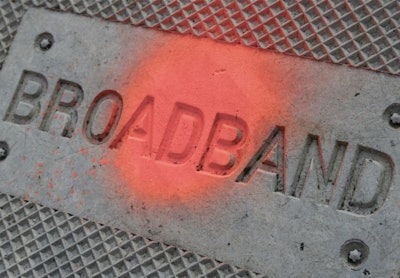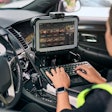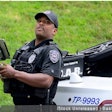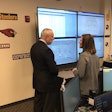 Photo: Gavin St. Ours
Photo: Gavin St. Ours
Like many people, I remember exactly where I was on Sept. 11, 2001. Reflecting on the tragedies of that day, it's disheartening to realize that the creation of a nationwide interoperable public safety network is one of the last outstanding recommendations of the 9/11 Commission Report. As a former police officer and assistant chief with the LAPD, I find this unacceptable. Police, firefighters, and other public safety officers must be able to communicate effectively with each other in times of crisis as well as during everyday operations.
Fortunately, the upcoming 10th anniversary of 9/11 is spurring action in Congress. In early June, the Senate Committee on Commerce, Science, and Transportation approved S. 911, a bipartisan bill that aims to create a nationwide high-speed wireless network for first responders. Introduced by committee Chairman Jay Rockefeller and Sen. Kay Bailey Hutchison, S. 911 was approved 21-4 in committee and now moves to the full Senate floor for a vote. The bill would designate 10 MHz of high-quality spectrum (the "D Block") to public safety. It would also establish the foundation for a nationwide public safety broadband network.
Vice President Joe Biden has publicly stated that the Obama administration supports the building of a fully interoperable nationwide network as it unlocks the potential for commercial devices and infrastructure to be used for public safety. A recent press release issued by his office reiterates this point, saying, "Almost ten years after 9/11, our system of public safety communications remains outdated, both from a performance and cost-effectiveness standpoint."
The FCC, Attorney General Eric Holder, and other top officials are also pushing for an interoperable network.
So what's the holdup?
As with any piece of legislation, congressional debate can get mired in the details. With this issue, a major discussion point centers on allocation versus auction of the spectrum. Allocation of the D Block, a central part of Rockefeller's bill, would let the FCC compensate broadcasters for giving up spectrum. The spectrum would then be auctioned to wireless companies and the monies received from those auctions would finance the building of a public safety network. On the other side of the spectrum issue, the auction idea allows the FCC to auction spectrum to a private entity that would build a network and let public safety agencies use it when they need to.
This isn't an "either, or" issue. Public safety agencies can work with the private sector. For example, each city could set up a contract or understanding so that the private sector can use the system unless there's an emergency. When crises arise, the public sector would take over. This type of public-private partnership would be a win-win situation for everyone.
Regardless of the finer details, the fact remains that Americans and public safety agencies have waited far too long for an interoperable public safety broadband network. Now — not next year or the one after — is the time for Congress to lay aside differences and stand behind the more than 2 million first responders who serve this country.
Related:














